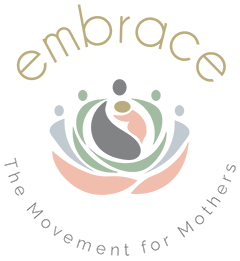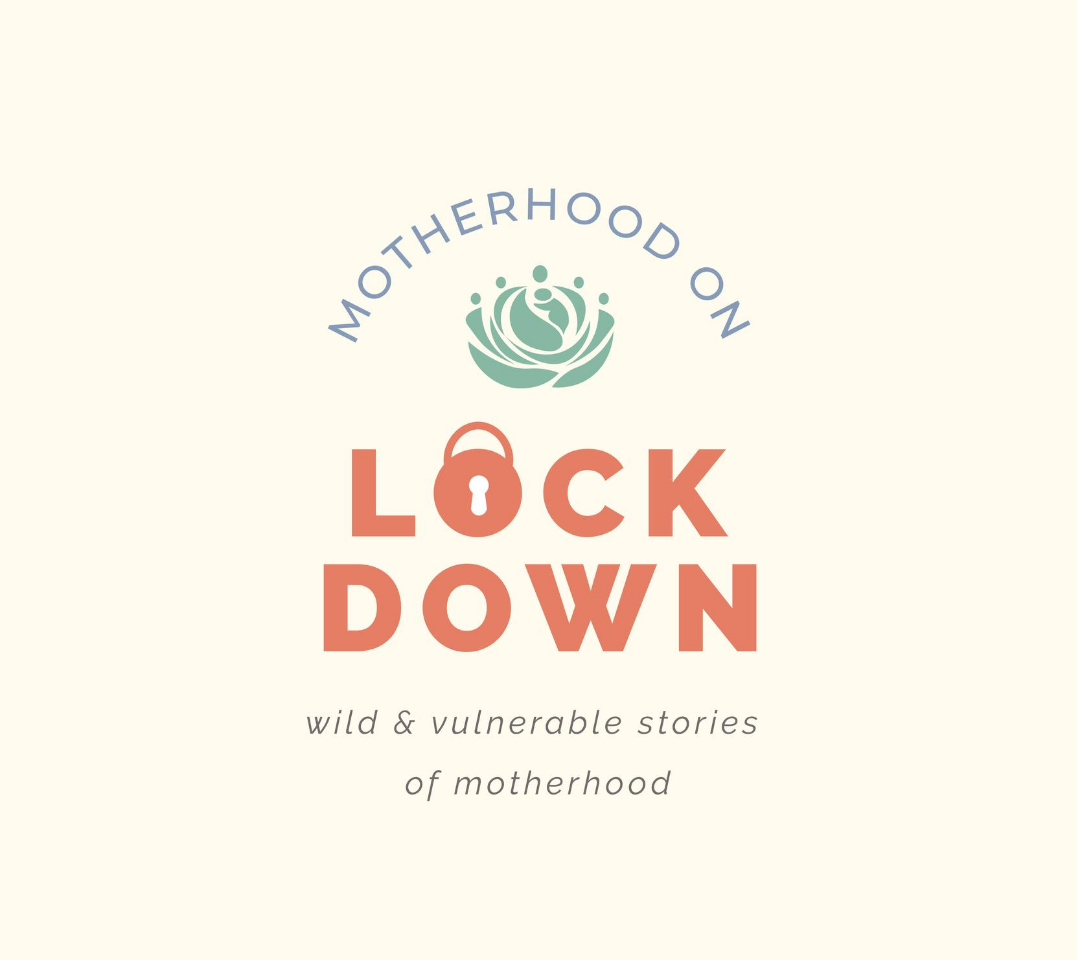What drew me to Embrace – long before I was a member of the hub team – was the chance to find a community of mothers with whom I could share some of the hardest parts of this journey. In the throes of postpartum depression, struggling to adjust to my new life, I needed friends in a way I never have before. Embrace offered me that. I found deep comfort in late night/early morning texts, frantic conversations about sleep deprivation, breastfeeding trouble-shooting sessions. I felt, as Vicki Rivard puts it in her book Brave New Mama, mothered, held up and surrounded strong, and told in so many ways that I belonged.
That’s part of what has made this new world of physical distancing so complicated. While we remain connected via our devices and through the internet, we no longer have the familiar touchstones of connections. A warm hug and a cup of tea made for a mother who’s just brought her baby home. A clean house and fresh laundry courtesy of your friends so that you can focus on bonding with your new baby. A quick visit to take the baby of your friend’s hands so she can enjoy a stress-free shower. And, hardest of all for those of us who are part of the Embrace community, we no longer had the annual celebration of new mothers who find themselves in the labour and maternity wards of our country on Mother’s Day.
This month’s campaign was designed with the express aim of reflecting on these losses and creating new spaces and ways in which we can gather. We kicked off with an honest conversation on mental health. Many of you confided in us, telling us your stories. Slindile Mbatha, our expert guest on our weekly Wednesday live reminded us all that there is no ‘normal’ response in these unprecedented times. The overall message was to be kind to ourselves and each other. Coping looks different for everyone.
Our second week was about the very elusive balance that moms often feel we’re chasing. The pandemic has forced us all into our homes and without the usual ebbs and flows and comings and goings offered by school days and the office, many moms find themselves carrying heavier loads than usual. It’s no wonder, then, that balance feels elusive. The opportunity in all this, our weekly expert Aimee Isaacs told us, is to let go of any efforts to hide our home lives from the people in our work lives. Here’s is an opportunity to dispel the persistent myth of mothers ‘having it all’ without adequate support. More than ever before, our home and work lives are intersecting and intertwined and the idea that we can somehow find balance through a neat separation has been revealed to be false.
In week three we looked at what it is like to be pregnant or newly postpartum during the COVID-19 crisis. Before we began this month, we knew that mothers are feeling understandably wary of healthcare institutions. The recently released 2020 National Income Dynamics Study – Coronavirus Rapid Mobile Survey (NIDS-CRAM)[1] found that COVID-19 has disrupted mothers’ access to ante- and postnatal care services. Of the 3 000 mothers who took part in the survey, only 16% reported visiting a health facility in April 2020 or earlier. In addition, 11% of mothers living with HIV ran out of antiretroviral therapy during the lockdown and about 5% of mothers whose children needed care or vaccinations, did not seek such care. Restrictions in maternity wards has meant that many mothers face the prospect of giving birth without the support of their partners or other birthing companions. All of this complicates what is already a delicate and vulnerable time in a mother’s life. Giving voice to these anxieties were Embrace members Samantha Herbst – who is pregnant – and Tshepiso Musehani – recently gave birth. In our Sunday night chat with these moms, we created a space for mothers to air some of these anxieties and to validate them. This week highlighted the need for spaces and services that offer holistic support – caring for both the physical and mental well-being of the pregnant or postpartum mother. As doula Beverley Chigwanda Kambarami said, every mother deserves to be cared for and supported through pregnancy, birth and beyond, especially now in times of uncertainty and fear.
In our last week, we looked at love, lust and loneliness. The pandemic has shifted the nature of family life. We are now together more than we have ever been, and in some cases, we find ourselves separated during times when we need each other the most. It is no wonder that our relationships – with our partners and our children – are changing rapidly. Some are folding under the strain, while others are being repaired. Regardless of which end of this wide spectrum you are on, what is important is to look after oneself and one’s needs first. Our Wednesday expert chat with Celeste Andrea, a physiotherapist who specialises in women’s health, reminded mothers who may find their intimate relationships affected by their recovery from birth that mothers should not have to live with debilitating conditions such as incontinence or chronic pain. Such problems make it harder for mothers to forge loving connections. Celeste reminded mothers that help is out there and freeing oneself of physical pain and discomfort may just be the best start on a path to restoring relationships and intimacy. In our Sunday chat about the topic, we highlighted the importance of speaking about seemingly ‘taboo’ topics. In talking about one’s body and one’s sexuality, women can reclaim ownership and take steps against a culture that objectifies our bodies. This was an especially poignant message as we marked the anniversary of the killing of Uyinene Mrwetyana, and renewed our commitment to fight gender-based violence in all its forms.
The end of Women’s Month is always bittersweet for us at Embrace. This time around, it marks the end of a month of deep conversations and radical connections. We are beyond grateful to our community for going on this journey with us, and sharing of your time, your stories and your selves so generously. We wish every month could offer women and mothers everywhere this space. Until then, we promise to hold this space for you.
[1] Spaull, N. et al. 2020. NIDS-CRAM Wave 1 Synthesis Report: Overview and Findings available at https://cramsurvey.org/wp-content/uploads/2020/07/Spaull-et-al.-NIDS-CRAM-Wave-1-Synthesis-Report-Overview-and-Findings-1.pdf.



